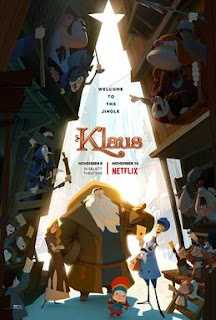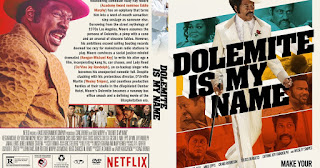Klaus (movie review)
by: Naufal Ubaidillah
Sweet
graphics, cute characters. That’s what you will see in this movie. The main guy
is brought up in his family’s luxurious life. One day, his father decides to
send the spoiled boy to the far-away island of Smeerensburg. He is given the
duty as a postman. Minimum of 6 thousand letters in a year and you will be free
for the rest of your life, but if not, you will be cut off from my fundings,
says his father.
There,
the guy is amazed by the feud between two major families there. Therefore, they
don’t talk with each other. Let alone send letters.
But
there are children. Little does he know that these children are going to be the
big chain of his success as a postman. One day, the guy (Jesper is his name, I
just remembered), finds a house that is quite far away from the rest of the
neighborhood. It is on the other end of the island. He is intrigued and he
wants to investigate who lives there.
There,
he finds a man with a giant body and wide beard/goatee. The name is Klaus. He
does not talk much. Jesper is fearful of Klaus, so he runs away. But
inadvertently, he leaves a drawing of one of the children of the Smeerensburg
downtown. This drawing reminds Klaus of his Lydia, his woman who died while
waiting to give Klaus an offspring. So, Klaus sends the child who draws the
drawing a toy, together with a letter with the “Klaus” name written on it.
Words spread from one child’s mouth to another. If you send a letter to Klaus,
you will get a toy, they say to each other. So a lot of children write letters
to Jesper. One day, Jesper delivers a toy to a child’s house. When he sees the
family photograph, he realizes it is the boy who bullied him on the road once
in the past. So, instead of the toy, Jesper left him something not nice. A
coal, most probably. The next days or so, the bullying boy protests to Jesper.
Jesper answered that Klaus only gives toys to children who behaves well.
Well,
there is a lot to the story, but you must watch it yourselves. Now, I will
close this writing with a sentence: “A true act of goodwill always sparks
another.”



Komentar